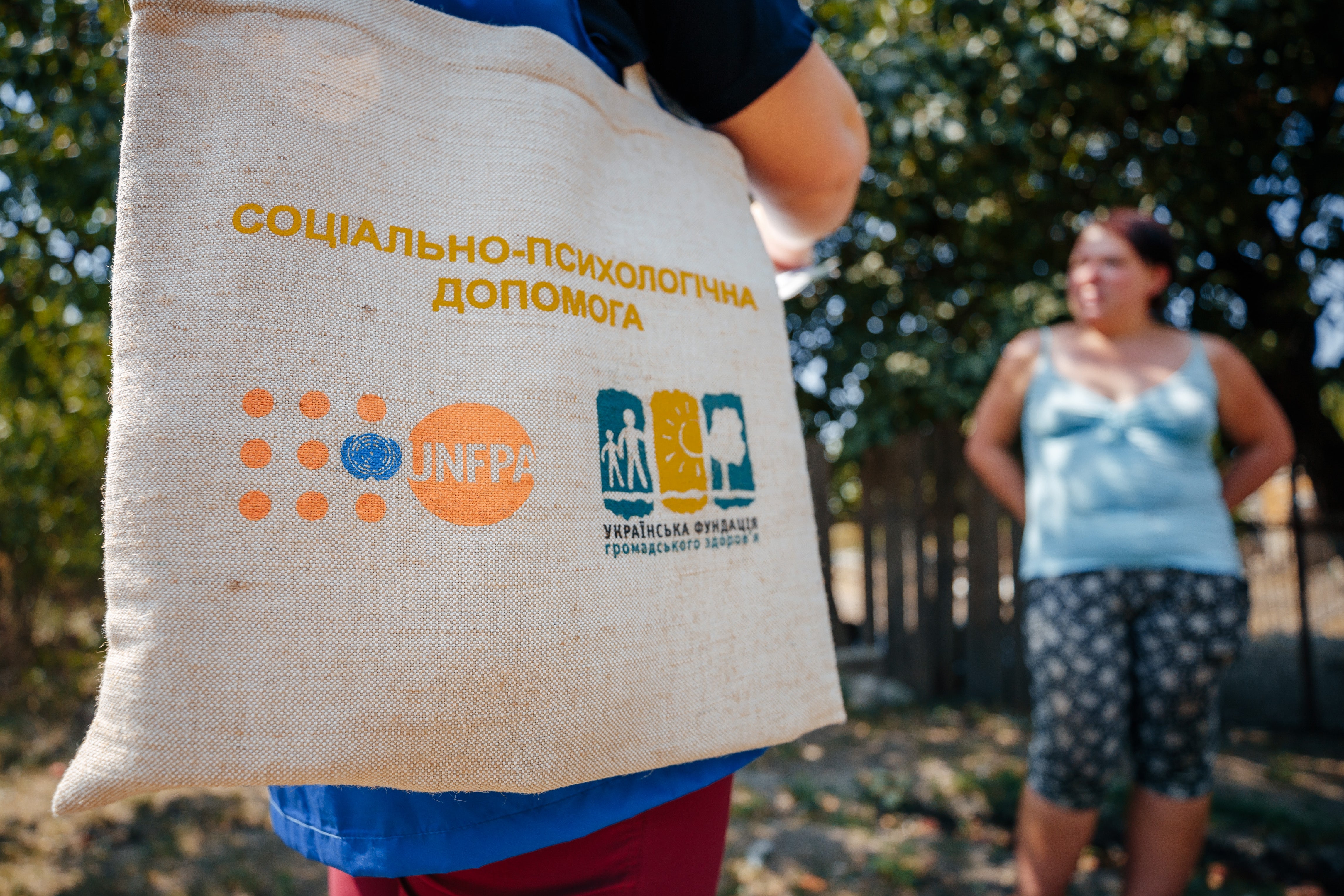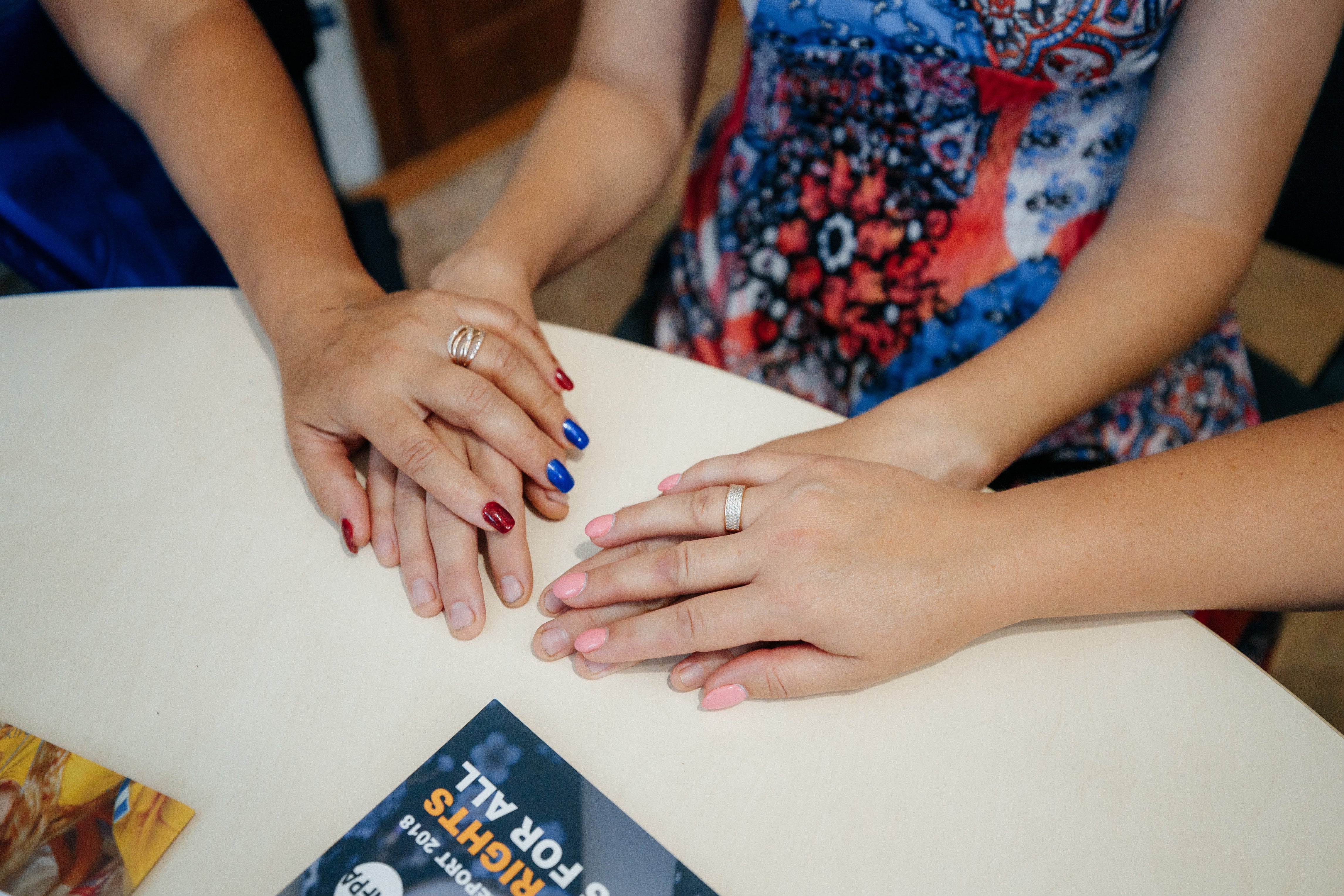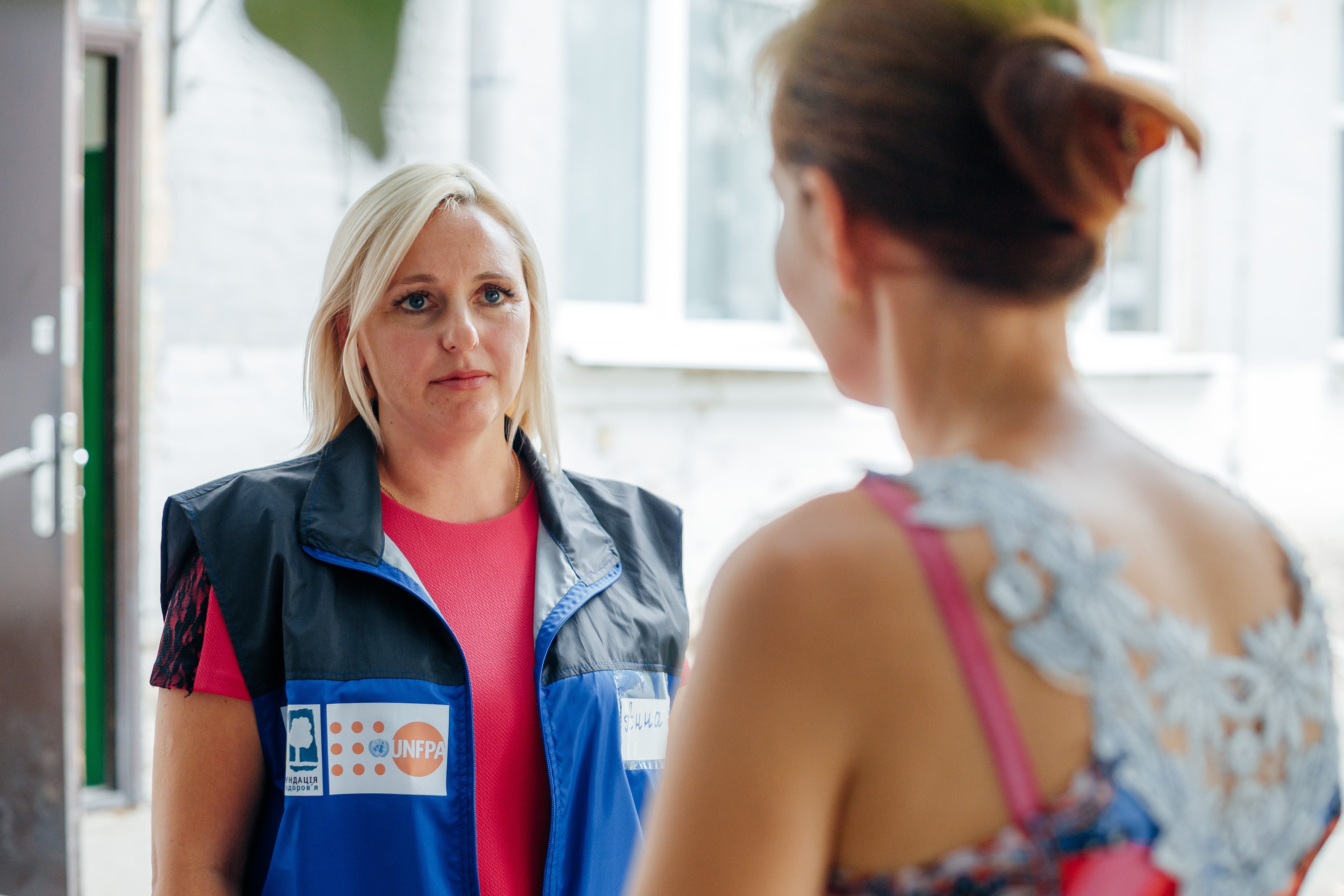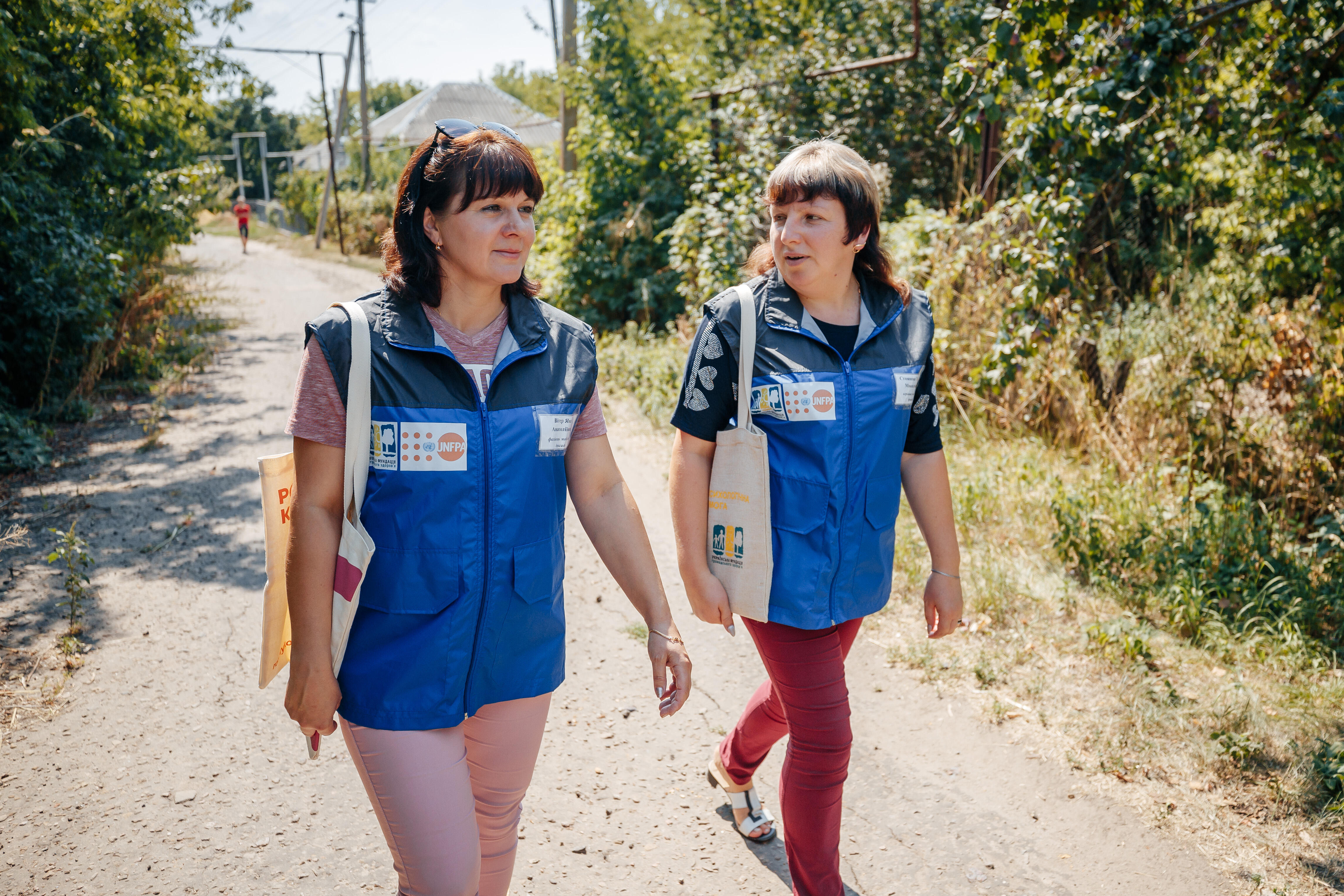“Only when it affected my child did I realize how wrong I was”, admits Oleksandr*, the father of a girl who suffered from domestic violence. Numerous beatings and quarrels once ruined his marriage to Svitlana, the child's mother. The woman disappeared with her daughter in no time without giving any details about their whereabouts. Then, together with the police, Oleksandr found them at the place of Svitlana's current cohabitee and was shocked: the frightened girl asked her father to take her with him. The stepfather often yelled at her, restricted her communication with peers and even raised his hand to her. With the help of specialists from the Bilokurakyne mobile team, the man managed to persuade Svitlana to return the child voluntarily to her home. After numerous consultations with a psychologist and a social worker, even people closest to him do not recognize him: Oleksandr takes care of his daughter and elderly mother, does the housework and provides his family with decent living conditions.
The leader of the Bilokurakyne mobile team, Tetiana Stoyanova, says that when they deal with offenders, such as “happy endings” are rare but very inspiring.
“Usually, they do not agree to talk, but the fact that the survivor has our support scares them a little and forces them to change”, says the expert.
There are now seven such municipal mobile teams that can significantly expand their capabilities of working with the affected population in remote locations and settlements along the contact line in Donetsk and Luhansk oblasts: in Kostiantynivka and Slovyansk cities, Bakhmut, Lyman and Mangush districts, in Troitske and Belokurakyne districts of Luhansk region. Since June this year, UNFPA Ukraine, together with the International charity foundation Ukrainian Foundation for Public Health, with the financial support of the UK government, has been providing them with the means of communication with clients and covering their transport costs associated with visiting remote settlements.

Mobile teams of psychosocial assistance can also go to those areas where this service is very much needed (but, unfortunately, is currently unavailable) providing emergency psychological assistance and social support. Each team consists of a leader, a social specialist, and a psychologist.
According to the data provided by UNFPA, 257 visits to survivors have been made since June this year, and 93% of them have been related to domestic and gender-based violence.
“Mobility greatly influences the efficiency of our work, which we were able to increase with the support of UNFPA Ukraine. Before that, we were often dependent on the transport of the police, medical service; we often spent our own money on taxis to go and help survivors. Now we can go to their home, even in remote locations of the district or front-line settlement, and give a consultation to survivors in the conditions that are usual for them. This reduces the psychological barrier to the service”, says Gulshan Agaieva, a psychologist in the Bakhmut mobile team.
The mobile team’s psychologist assures that if there was no mobile team, only 10% of clients would turn to psychologists on their own.
“Most survivors do not even have access to the Internet. Therefore, we usually consult by phone. Those living in border villages often have communication problems due to connected roaming. Some people cannot come to us because of their health condition or lack of money. We always go to them and it is a big plus that we have such an opportunity”, say the specialists in the Bilokurakyne mobile team.
Specialists say that amid the ongoing conflict in the East, the work in villages is being complicated by the constant stress of the local population, alcohol issues, low awareness of domestic violence, lack of financial capacity, and conservative structure of families.

“Many survivors have suffered from humiliation and insults for years; however, they do not realize that this is not the norm because they have not seen a different family model”, says Olena Davydova, a psychologist in the Bilokurakyne mobile team.
That is why one of the areas of mobile teams’ work is educational activities and public awareness.
“When we make a planned visit to villages, we try, after performing the individual work, to just gather people and tell them about the model and the possibility of receiving assistance. The emphasis was made on the confidentiality and free-of-charge aspects. While telling her story, a woman realized and admitted that her husband was committing psychological violence against her. We gave her recommendations which made her look at her life and toxic relationship differently”, says the specialist.
It is women who most often suffer from domestic violence (82% of the total number of cases). But according to mobile teams’ specialists, the situation where violence is committed against children is very widespread.
“The biggest challenge is to impress upon parents that children should be their priority. It sometimes happens that a woman places the interests of her partner above her children’s welfare and protects the offender saying, for example, that her teenage son provokes violence”, says a specialist of the Troitske mobile team.

Alcohol as the trigger for violence
According to the research called “Masculinity Today: Men's Attitudes towards Gender Stereotypes and Violence against Women”, 55% of violence perpetrators were under the influence of alcohol or other stimulants.
Mobile teams' specialists in eastern Ukraine agree with the statistics but they say that in their practice the figure is higher.
“Many of our clients' families have alcohol issues that often result in violence”, says Gulshan Agaieva, a psychologist in the Bakhmut mobile team.
Specialists point to progress in people's attitude to the problem. According to Tetiana Stoyanova, a mobile team leader, more and more people are ready to talk about domestic violence in their families.
“If in 2016 there were only 74 appeals in the district, now there are more than two hundred”, says the specialist.
As a reminder, in June 2020, UNFPA, the United Nations Population Fund, began supporting seven municipal mobile teams in eastern Ukraine which go to remote settlements and locations along the contact line and provide psychosocial assistance to victims of gender-based violence. Increasing the capacity of mobile teams became possible with the financial support of the UK government.


